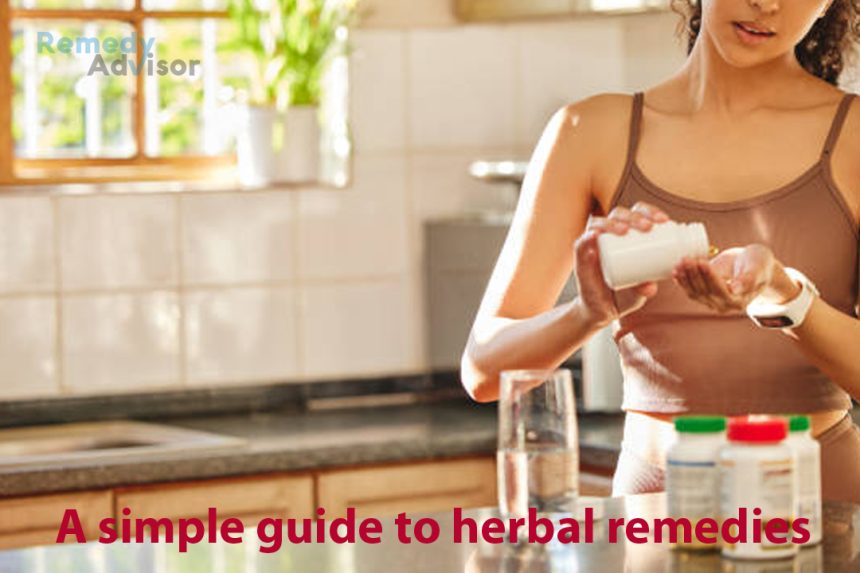Even if you eat right, exercise regularly and get plenty of sleep, herbal supplements can raise your health to a whole new level.
As explained here by one of the country’s leading herbalists, Dr. Daniel B. Mowrey, so called “tonic” herbs confer an impressive array of health benefits, including increased energy and stamina, heightened immunity, reduced risk of heart disease, improved liver function and reduced joint inflammation.
If you’d like to add herbal remedies to your medicine chest, start with the following eight tonic herbs. All are available at health food stores.
Unlike drugs, herbal preparations are not regulated by the FDA. Ask the store clerk to recommend a reputable brand.
The doses listed are based on capsules containing 850 milligrams (mg) to 900 mg of the herb.
Caution: Consult a doctor before starting any herbal regimen especially if you have a heart ailment or another chronic illness and/or you are using prescription or over-the-counter medications. Herbal remedies can dangerously interact with certain drugs.
If you develop a rash, nausea, hives, headaches or hay fever-like symptoms while taking an herb, stop using it immediately.
Cayenne
Cayenne is good for the cardiovascular system. A mild stimulant, the herb also helps maintain muscle tone in the stomach and intestinal walls and enhances digestion. Cayenne is also an excellent “activator herb,” amplifying the benefits of other herbs you take.
Daily dose: Two capsules. Or use ground cayenne as a spice.
Echinacea
Echinacea fights illness on two levels. First, it boosts levels of white blood cells, B- and Tlymphocytes and phagocytes the key components of a healthy immune system. Second, it neutralizes invading microorganisms. German researchers have revealed that echinacea prevents strep, staph as well as fungal infections, in conjunction with a number of viruses.
Daily dose: Two capsules. Be sure the capsules contain the whole root in powdered form, not extract.
Used intermittently, liquid extract of echinacea makes a soothing balm for sore throats. Using an eyedropper, let a few drops fall against the back of your throat.
Garlic
This spice prevents heart disease by reducing cholesterol levels and hindering formation of fatty deposits within coronary arteries. It increases levels of T-cells, a dangerous element of the immune system.
Animal and human studies have shown that garlic also relieves arthritis. It contains sulfur compounds, which are known to have significant anti-inflammatory properties.
Daily dose: Two pills. Or use a garlic clove or garlic powder in your cooking.
Gingerroot
Gingerroot is an excellent remedy for indigestion, constipation, diarrhea and nausea (including morning sickness). There’s no good explanation for why it works. But my research suggests that ginger is even more effective than Dramamine at preventing motion sickness. It is also effective against the flu.
Be sure to buy capsules made from the whole gingerroot not extract.
Daily dose: For mild motion sickness, take two capsules 15 minutes before you depart (and two to four more every hour or whenever symptoms return). For serious gastrointestinal upset, take six to 12 capsules an hour.
Lapacho
A South American herb, lapacho contains napthoquinones (N-factors), unique compounds that have antiviral and antibiotic properties. It’s best at preventing bacterial and fungal infections, colds and flu.
Taken in capsule or tea form, lapacho soothes painful joints, and boosts energy levels. Lapacho also stimulates activity of enzymes in the liver, enhancing its ability to remove toxins from the blood.
In Brazil, lapacho is used to treat leukemia and cervical cancer, and lapacho salve is used to treat skin cancer.
Studies suggest that the herb may also be effective against breast cancer.
Make tea by simmering the purplish paper thin inner lining of the bark in hot water for 20 minutes, then strain and let cool. Leftover tea can be refrigerated.
Daily dose: To prevent illness, four capsules or two cups of tea. To treat an infection, six capsules or one to two quarts of tea.
Milk thistle
One of the world’s most studied plants, milk thistle is very good for the liver. By stimulating protein synthesis, it boosts levels of key liver enzymes, speeding regeneration of damaged liver tissue. It also inhibits lypoxygenase, an enzyme that destroys liver cells.
Studies show that milk thistle can help reverse the effects of hepatitis and cirrhosis.
Daily dose: Two capsules.
Pygeum extract
Derived from the bark of an African tree, pygeum has been shown to prevent and even relieve benign enlargement of the prostate. It contains phytosterols, which are potent anti-inflammatory compounds. Pygeum also contains triterpenoids, compounds that have an anti-swelling effect.
Daily dose: To prevent prostate enlargement, two capsules. To shrink an enlarged prostate, four capsules.
Yerba mate
This South American herb improves energy and stamina without triggering the anxieties that caffeine can cause. Anecdotal reports recommend that yerba mate is best against asthma and allergies, however the mechanism is unidentified. Yerba mate is best taken as a daily tea. Pour boiling water over yerba mate leaves, let sit for 10 minutes, then strain and serve.
Daily dose: Two to four cups.







